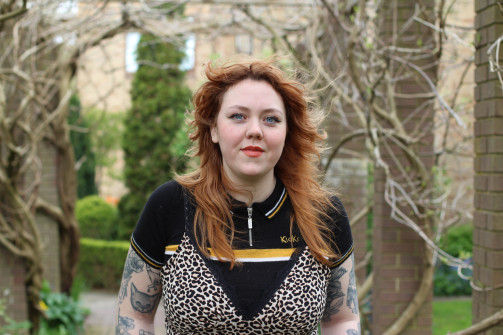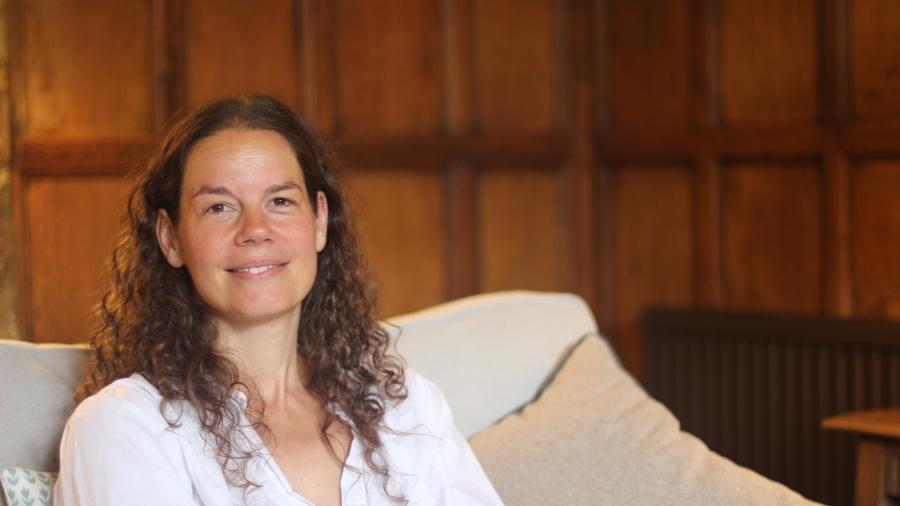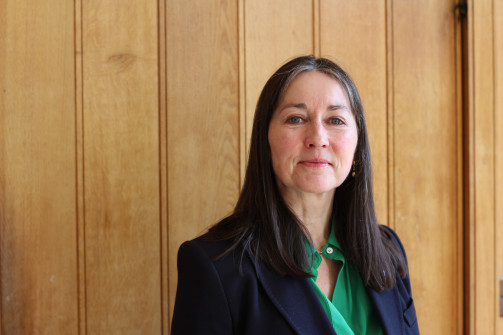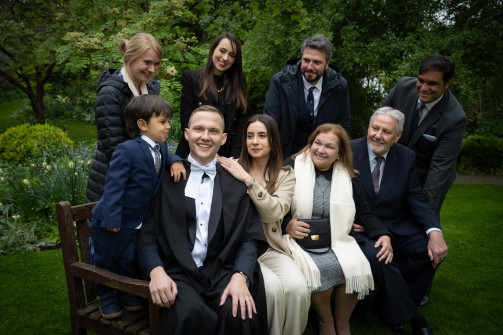MPhil Education student Grace Batley finds her authentic voice in academia

Katie Harber’s research could play a small part in changing the face of justice in the UK.

A part-time PhD student in Criminology, Katie is a Detective Superintendent for the Metropolitan Police and helps to run a randomised study offering an alternative to the traditional ‘caution or court’ route for offenders.
“We’re running a trial that compares the effects of charging or cautioning a person with, instead, suspending that prosecution and providing a contract of behaviours that are specifically designed to reduce reoffending and improve victim satisfaction,” she explains.
The project, ‘Turning Point’, puts restorative, rehabilitative, and, in some circumstances, punitive conditions on offenders in an effort to have more positive long-term impacts. Offenders are monitored for four months to ensure they’re sticking to the conditions, such as attending drug treatment programmes. If they’re successful, their prosecution is then cancelled, while any reoffending is tracked for two years.
Katie began the project after hearing her now-supervisor Dr Peter Neyroud, Lecturer in Evidence-based Policing and Deputy Director of the M.St. Police Executive Programme at the University of Cambridge, speak at a conference in 2017.
Dr Neyroud, who is also a Wolfson alumnus and College Teaching Associate, had shown how the approach yielded positive results in Birmingham, but he pointed out that the research needed to be replicated by other police forces to add weight to the findings. Katie had “a lightbulb moment” and got her project running in North West London and it now sits under the Ministry of Justice’s ‘Chance for Change’ programme.
Having already completed her MSt in Applied Criminology and Police Management at another Cambridge college, Katie decided to move to Wolfson for her PhD. She wanted to be at a mature, more diverse college that had more going on out of term time.
“I think it’s very geared up for part-time students at Wolfson,” she says. “We’ve been offered the Special Study Week, the library have been very proactive, helping you to develop the skills, I think that’s pretty unique.”
Wolfson has more part-time students than any other Cambridge college, and its Special Study Week offers part-time students a chance to socialise in the cafeteria, College bar and Formal Hall, explore Cambridge on walks, or join workshops on academic writing and referencing offered by Academic Skills Librarian Alberto Garcia Jr.
This month, the College hosted 24 of its part-time students: 21 on Masters courses and three PhDs from 13 different courses. The event was a lively mix of historians, architects, engineers, civil servants, police officers, teachers, creative writers, and many others, all pursuing part-time postgraduate study. Over lunch and dinner throughout the week, students swap stories about their projects, then head to libraries or their rooms to get on with research and writing.
Their research interests range widely: from the history of triangular buildings in London to women's experiences in 19th-century lunatic asylums, from the organisation of open-air city markets to performance management in policing and many more diverse and original topics.
“The opportunity to socialise, to have library contact time, to do the academic skills session was all really appealing,” says Katie, explaining her reasons for attending the event.
With a part time PhD taking up to seven years, Katie is keen to be an active member of the College during that time: “I wanted to build a network of likeminded people who will encourage you along the way,” she says.
You can find out more about part-time study at Wolfson on our website.
And you can learn more on the Special Study Week webpage.







